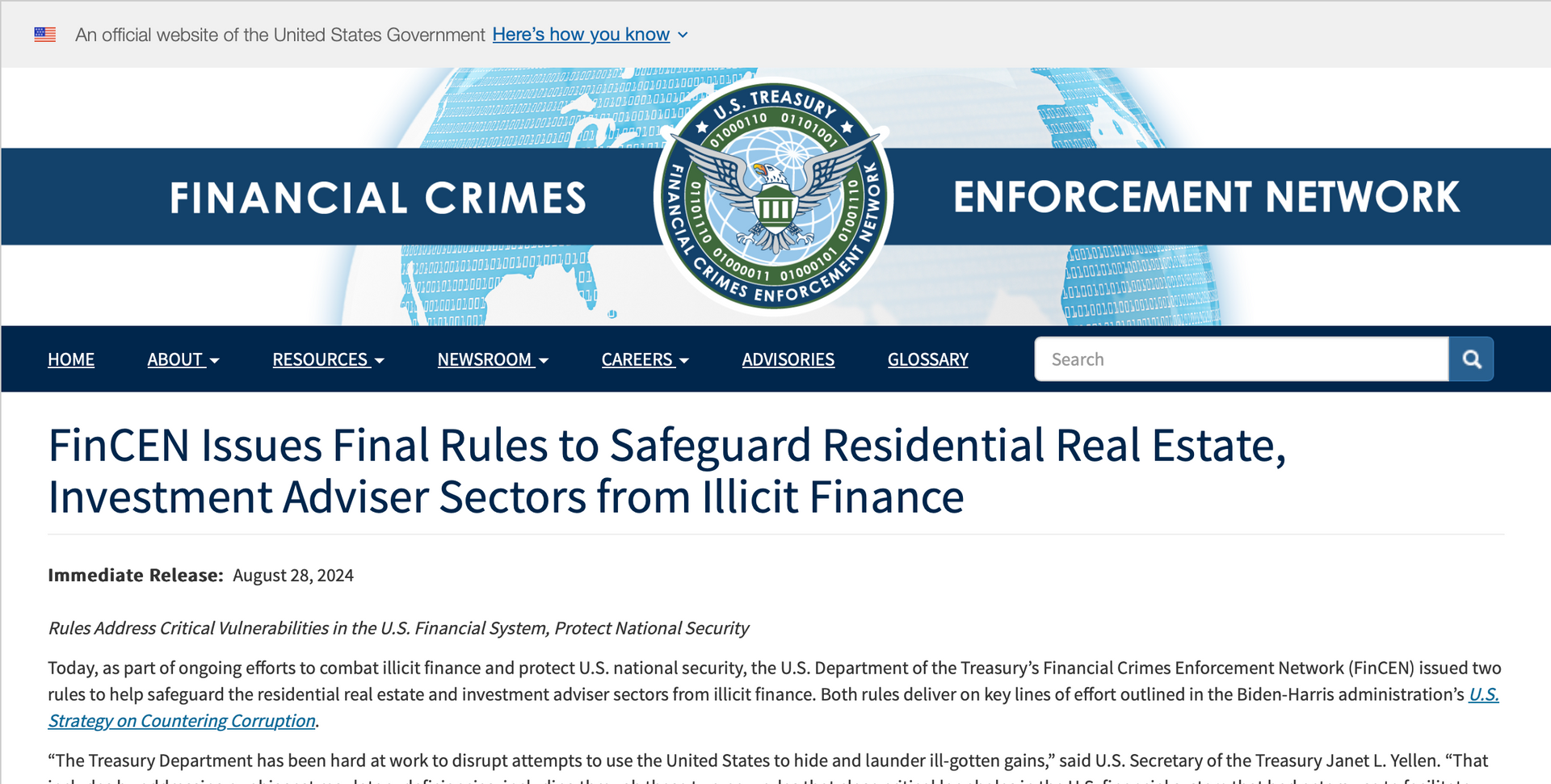FinCEN's New Reporting Rules: What Homebuyers and Sellers Need to Know About Real Estate Transfers
Understanding the 2025 FinCEN Regulations: Implications for Non-Financed Property Transfers to Legal Entities and Trusts.

New FinCEN Reporting Requirements for Residential Real Estate Transfers
I want to inform our clients and partners about important new federal regulations that will impact certain residential real estate transactions. The Financial Crimes Enforcement Network (FinCEN) has issued a final rule that creates new reporting requirements for non-financed transfers of residential real property to legal entities or trusts.
Key Points of the New Regulation
Effective Date: The new rule will take effect on December 1, 2025.
Scope: The reporting requirements apply to transfers of residential real property, including:
- Single-family homes
- Townhouses
- Condominiums
- Cooperatives
- Buildings designed for occupancy by one to four families
- Certain vacant or unimproved land
Reportable Transactions: The rule focuses on non-financed transfers of residential real property to legal entities or trusts.
Reporting Responsibility: The rule establishes a "cascading" system to determine who must file the report, typically falling to professionals involved in closing or settlement functions.
Information to be Reported: The required "Real Estate Report" will include details about:
- The transaction
- Parties involved
- Beneficial ownership of the legal entity or trust receiving the property
Reporting Deadline: Reports must be filed by the later of:
- The last day of the month following the month of closing, or
- 30 calendar days after the closing date
Exemptions from Reporting: Exemptions are provided for certain common, lower-risk transfers. A reportable transfer does not include:
- a transfer of an easement;
- a transfer resulting from the death of an individual, whether pursuant to the terms of a decedent’s will or the terms of a trust, the operation of law, or by contractual provision;
- a transfer incident to divorce or dissolution of a marriage or civil union;
- a transfer to a bankruptcy estate;
- a transfer supervised by a court in the United States;
- a transfer made for no consideration by an individual, either alone or with their spouse, to a trust of which that individual, their spouse, or both of them, are the settlor or grantor;
- a transfer to a qualified intermediary for purposes of a like-kind exchange under Section
- 1031 of the Internal Revenue Code; and a transfer for which there is no reporting person.
Impact on Real Estate Professionals
While this new rule primarily affects those directly involved in closing and settlement functions, it's crucial for all real estate professionals to be aware of these changes. The regulation aims to increase transparency in the U.S. residential real estate sector and combat potential illicit financial activities.
What This Means for Our Clients
If you're considering purchasing residential property through a legal entity or trust without traditional financing, be prepared to provide more detailed information about the ownership structure. This may include:
- Identifying information for beneficial owners
- Details about the entity or trust receiving the property
- Information about individuals signing documents on behalf of the entity or trust
Our Commitment
At Bigueur Realty Group Inc., we are committed to staying informed about regulatory changes that affect our industry and our clients. While we may not be directly responsible for filing these reports in most cases, we will work closely with closing agents, title companies, and legal professionals to ensure smooth transactions that comply with all applicable regulations.
As we approach the implementation date, we will provide updates and additional information to help our clients navigate these new requirements. If you have any questions about how this might affect your real estate transactions, please don't hesitate to reach out to our team.
Remember, these regulations are designed to protect the integrity of the real estate market and prevent potential misuse of property transactions for illicit purposes. By working together and staying informed, we can contribute to a more transparent and secure real estate environment for all.
Read the full FinCEN post here:


